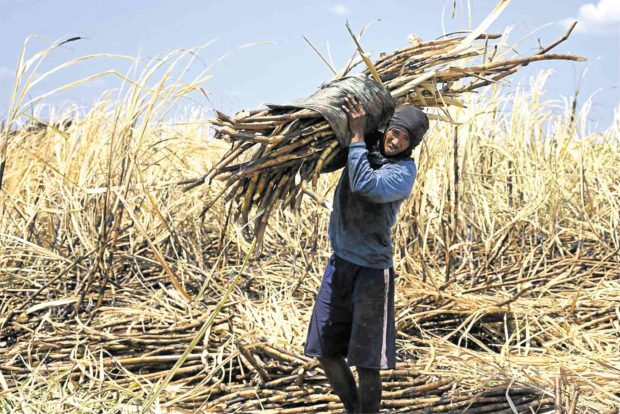
Sugarcane farmers are a regular sight in Tarlac province due to many farms, such as those in San Manuel town, as seen in this 2016 file photo. (WILLIE LOMIBAO)
MANILA, Philippines — President Ferdinand “Bongbong” Marcos Jr. has won a commitment from an international company that will help beef up the country’s sugar supply and ethanol production.
Brazil-based DATAGRO is described as the world’s largest sugar and ethanol producer and exporter by the Presidential Communication Office (PCO).
On Monday, Marcos met with officials from the Department of Agriculture (DA), Sugar Regulatory Administration (SRA), DATAGRO, and the Private Sector Advisory Council (PSAC).
In the meeting, the President expressed hope about improving sugarcane yield, which he noted is crucial to sugar sufficiency and the fuel market.
“I’m very optimistic… that a long-term program to increase production and profitability in the sugar industry is possible… in the Philippines,” Marcos said, as quoted by the PCO.
DATAGRO offered pilot testing in Negros and Panay Islands using their Tech Transfer and Assisted Management Project at the meeting.
To showcase Brazilian production norms, 1,000, 5,000, and 10,000-hectare demo plots would be built.
The Brazilian firm also suggested converting sugar in molasses to ethanol to avoid sugar contamination and refined oil imports.
Thus, Marcos requested that the DA and PSAC propose tech and operations demos for Filipino farmers.
“So we had to put the farm next to them so they can see that it works. They say that ‘if my neighbor can do it, I can do it too.’ And if you can show them you make more money doing it, then they will transfer,” Marcos said.
“And that’s what we need to do, in a sense. And so we have to demonstrate it. We have a process here in the Philippines which is called a techno-demo, which is a demonstration of new technology. So techno-demo, that’s what we will have to conduct,” he added.
The President asked the DA to deepen their collaboration with stakeholders and assess the feasibility of DATAGRO’s plans.
“Perhaps you can give us the best idea, the best framework so that we know what we need to do on this end. Pag-usapan natin how to develop the program… and then you have to talk to the stakeholders,” Marcos said.